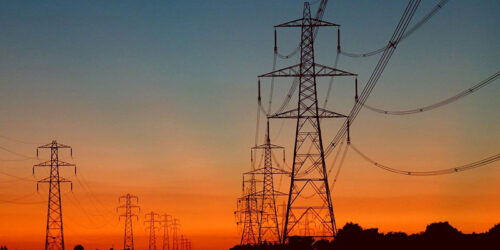With a summary for increase in price of natural gas by up to 35 per cent on the table, the Cabinet Committee on Energy (CCoE) on Friday approved a flat tariff of Rs12.96 per unit for electricity consumers across the country on additional consumption for four winter months in an effort to promote use of electrical appliances for heating room and water.
The CCoE meeting presided over by Planning Minister Asad Umar “approved the summary submitted by Power Division on the winter incentive package on incremental consumption for all domestic, commercial and general services consumers of XW-DISCOs and K-Electric from 1st November 2021 till 28th February 2022”, said an official statement.
In its summary, the power division reminded the CCoE that it had on September 13 approved in principle the winter incentive package on incremental consumption for all domestic, commercial, and general services consumers of XW-DISCOs… with the directive to “come back with a new summary with uniform application of package to the KE consumers as well”.
The CCoE had expressed the desire that instead of Rs12.66 per unit proposed by the power division for residential consumers, “the concessionary rate be fixed at Rs12.96 per unit”.
In its revised summary, the division said the application of winter package at concessionary rate of Rs12.96 per unit for all consumers on additional consumption was subsidy neutral for Discos and involved a subsidy requirement of Rs1.3 billion for the KE consumers.
Accordingly, the incentive package now approved would be applicable to all domestic, commercial, and general services consumers of Discos and KE for the period from Nov 1, 2021 to Feb 28, 2022.
(The rate charged for peak hours at the moment is about Rs20 per unit. The introduction of a concessionary rate is aimed at promoting the use of electricity for heating purposes, thereby inducing a reduction in the demand for gas.)
The reference period for incremental consumption will be November 2020 to February 2021. Under the initiative a rate of Rs12.96 per unit would be charged to domestic consumers (non-ToU or non-time of use) on the incremental consumption, above monthly use of 300 units or above the reference consumption in the corresponding months of the reference period, whichever is greater.
The same rate of Rs12.96 per kWh shall be charged to commercial consumers (non-ToU) and General Services consumers on the incremental consumption above the consumption in the corresponding months of the reference period.
For TOU (time of use) residential and commercial consumers, the rate of Rs12.96/kWh shall be charged on the respective peak/off-peak incremental consumption, above the reference peak/off-peak consumption in the corresponding months of the reference period.
New and existing consumers having no reference consumption available in the period from November 2020 to February 2021 shall be offered the same rate of Rs12.96 through benchmark consumption methodology.
No quarterly adjustments would be applicable on incremental consumption but only positive fuel price adjustments shall be passed on to the consumers availing the incremental consumption package.
Sources said that on the directives of the CCoE, the petroleum division had come up with an inverse tariff for domestic consumers, which envisaged no change in gas rates for the first two slabs, involving Rs121 and Rs300 per unit (million British Thermal Unit), to protect 78pc of the consumers.
However, it envisaged 25pc to 35pc increase in rates for all other consumers.
The planning division said the CCoE considered revision of gas tariff slabs for the domestic consumers during the winter season. It agreed that gas was a precious energy resource and that import of LNG was a large drain on the country’s foreign exchange.
“It is now critically important to realise both on the individual and national levels that energy resources need to be conserved by switching to energy-efficient appliances,” the committee said.
It added that a committee led by Science and Technology Minister Shibli Faraz and comprising secretaries of petroleum and power and member for energy planning should suggest within 30 days measures to ensure use of efficient appliances through various fiscal and administrative incentives along with regulatory actions to be taken to promote these appliances to rationalise the consumption, reduce consumer’s monthly expenses and resultantly reduce the country’s energy import bill.





